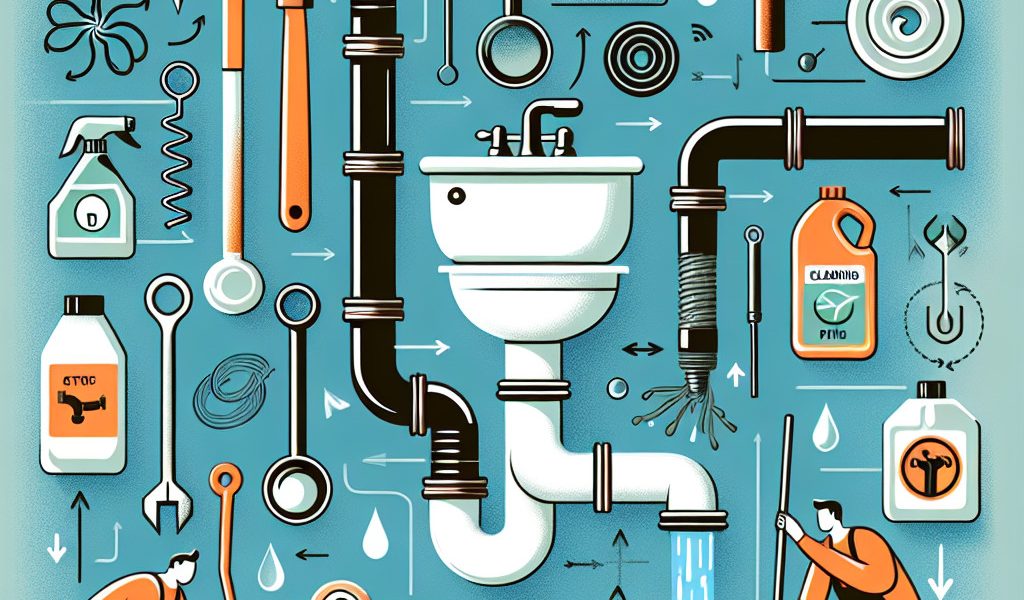Master the Art of Pipe Unclogging: Affordable DIY Techniques & Expert Recommendations
Introduction
Blocked pipes are a common household problem that can cause significant inconvenience. The causes of these clogs can be diverse, ranging from food residue and hair to soap and grease. In this article, we present different methods to unclog your pipes effectively, starting with DIY (Do It Yourself) solutions up to the intervention of a professional if necessary. We will also discuss some preventive tips to avoid clogging pipes.
DIY methods for unblocking pipes
Before calling a professional, it is possible to try several simple and inexpensive techniques to try to unclog your pipes:
Boiling water
Boiling water is a quick and easy solution for dissolving certain types of clogs, especially those caused by grease or soap. Simply pour a large quantity of boiling water into the affected pipe, being careful of splashing.
White vinegar and baking soda
This ecological method consists of pouring approximately 200 g of baking soda into the pipe followed by a glass of white vinegar. Leave on for at least 30 minutes before rinsing with warm water. The chemical reaction between the vinegar and the bicarbonate dissolves the residues that block the pipe.
The sucker
The suction cup is a simple and effective tool for unblocking pipes, especially those in toilets or sinks. Place the suction cup over the drain opening, making sure to cover the entire surface, then move back and forth to create pressure that will help dislodge the clog.
Ferrets
The ferret is a flexible metal tool equipped with a brush or a hook at its end, allowing you to penetrate pipes and remove blockages. Slowly insert it into the pipe until you reach the blockage, then use rotating movements to dislodge the accumulated residue.
Call a professional
If despite your efforts you are unable to unclog your pipes with these DIY methods, it may be necessary to call a professional. A qualified plumber has specific tools such as:
- Inspection camera: it allows the professional to precisely assess the condition of the pipes and thus identify the location of the blockage.
- High pressure unblocker: This device projects high pressure water into the pipes to dislodge blockages and clean the walls.
- Water jetter: This is a truck equipped with a water pump which unclogs pipes by projecting water under very high pressure. This method is particularly effective for stubborn or difficult to access blockages.
Calling a professional can be expensive, but it is often the most effective and lasting solution to solving your clogged pipes problems.
Preventative advice to avoid blocked pipes
To limit the risk of your pipes becoming clogged, here are some preventive tips:
- Dispose of your waste correctly: do not throw grease, oil or solid food residue down your sink. Instead, use a suitable trash can or composter if you have one.
- Install anti-hair grilles: place these grids on your drains (shower, sink) to prevent hair from accumulating in your pipes.
- Rinse your pipes regularly: approximately once a month, pour a mixture of hot water and white vinegar into all your drains to gradually dissolve any residue that may accumulate.
- Maintain your pipes: If you notice that the water is draining more slowly than usual, don’t wait for the situation to deteriorate and act quickly using the DIY methods presented previously.
By following these preventive tips, you will considerably limit the risks of your pipes becoming blocked and will thus avoid costly or unpleasant interventions.
Conclusion
Unblocking pipes can be a complex task, but there are several effective methods to try before calling in a professional. DIY solutions such as boiling water, white vinegar with baking soda, a suction cup or a ferret can be sufficient to clear many blockages. If, despite everything, the problem persists, do not hesitate to contact a qualified plumber. Finally, consider taking preventive measures to prevent your pipes from becoming clogged again in the future.
